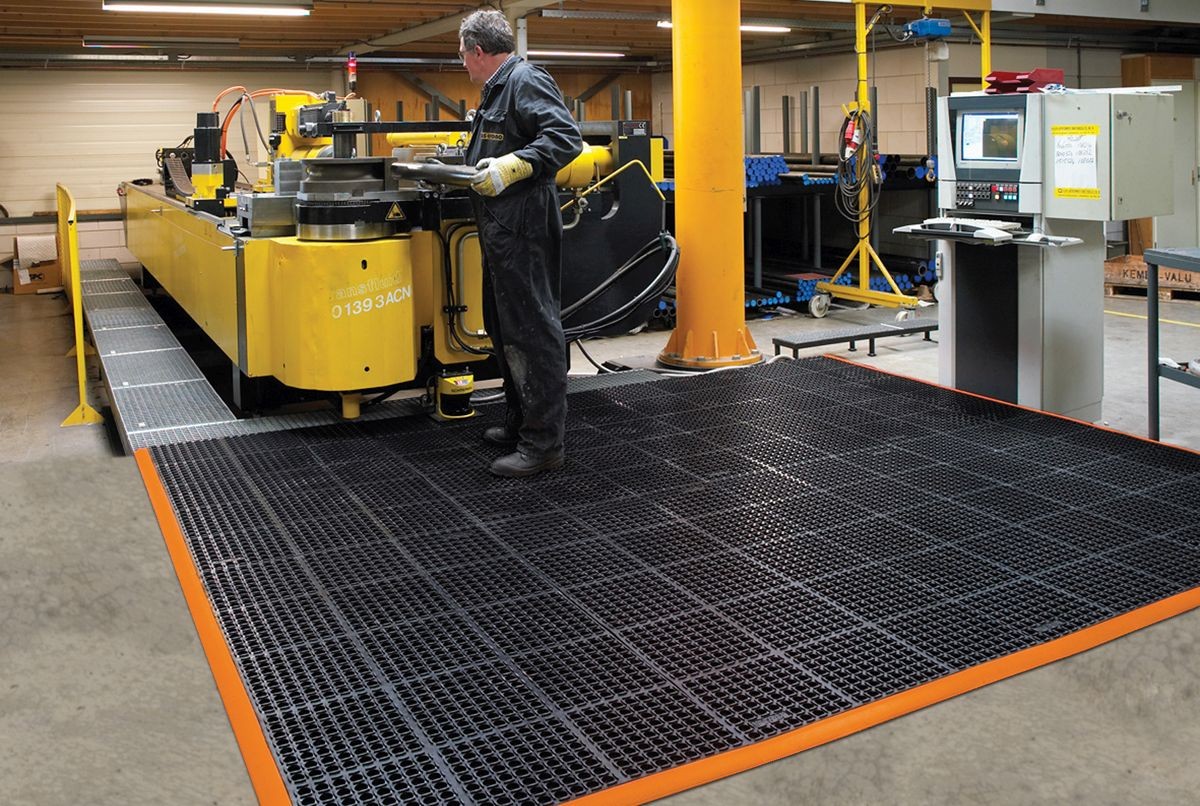
The industrial floor mat market is projected to reach a valuation of USD 4.5 billion by 2024 and is expected to grow to USD 7.1 billion by 2034, with a CAGR of 4.5% from 2024 to 2034. This growth is driven by the mats’ essential role in improving workplace safety, productivity, and hygiene across industries. These mats, made from durable materials like rubber, PVC, and anti-fatigue foam, are designed for heavy-duty use.
Industrial floor mats help reduce the risk of accidents by preventing slips, trips, and falls in industrial environments. They also offer ergonomic benefits, with anti-fatigue mats providing support to workers who stand for long hours, enhancing comfort and overall well-being.
Beyond safety and comfort, industrial floor mats contribute to maintaining cleanliness in workspaces by trapping dirt, debris, and moisture, which helps prolong floor life and reduce maintenance costs. Their versatility makes them valuable across various sectors, including manufacturing, healthcare, food processing, and automotive, addressing specific needs in each industry.
As industries continue to prioritize workplace safety, employee health, and cleanliness, the demand for industrial floor mats is expected to rise. With ongoing advancements in materials and applications, these mats will continue to play a crucial role in creating efficient, safe, and hygienic industrial environments. Their adoption will remain key to fostering secure and productive workplaces across diverse sectors.
Key Takeaways from the Market Study:
- Based on type, the anti-fatigue mats are projected to expand at 4.3% CAGR by 2034.
- China is estimated to register at a CAGR of 4.9% by 2034.
- South Korea experiences significant growth, projected at a CAGR of 5.2% by 2034.
- Based on material type, vinyl is anticipated to expand at a CAGR of 4.1% by 2034.
Competitive Landscape
In the competitive landscape of the industrial floor mat market, companies vie for market share by focusing on product innovation and customization. Established players emphasize technological advancements, such as antimicrobial features and ergonomic designs, to meet evolving industry needs.
Strategic global expansions and partnerships contribute to a dynamic market where sustainability practices, distribution channels, and a commitment to safety standards play pivotal roles in maintaining a competitive edge.
Key Segments of Industrial Floor Mat Industry Survey:
By Type:
- Anti-fatigue Mats
- Anti-static Mats
- Scrape Mats
- Anti-slip Mats
- Others (Cleanroom Mats, Chemical Resistant, etc.)
By Material:
- Vinyl
- Polypropylene
- Rubber
- Synthetic
- Others (Polyester, Plastic, etc.)
By Category:
- Dry Surface
- Wet Surface
By End-use:
- Food & Beverage
- Automotive
- General Manufacturing
- Oil & Gas
- Pharmaceutical
- Others (Aerospace & Material Handling, etc.)
By Distribution Channel:
- Direct
- Indirect
By Region:
- North America
- Latin America
- Western Europe
- Eastern Europe
- South Asia and Pacific
- East Asia
- Middle East and AfricaBottom of Form
Report Preview: https://www.futuremarketinsights.com/reports/industrial-floor-mat-market
About Future Market Insights (FMI)
Future Market Insights, Inc. (ESOMAR certified, recipient of the Stevie Award, and a member of the Greater New York Chamber of Commerce) offers profound insights into the driving factors that are boosting demand in the market. FMI stands as the leading global provider of market intelligence, advisory services, consulting, and events for the Packaging, Food and Beverage, Consumer Technology, Healthcare, Industrial, and Chemicals markets. With a vast team of over 400 analysts worldwide, FMI provides global, regional, and local expertise on diverse domains and industry trends across more than 110 countries.
Contact Us:
Future Market Insights Inc.
Christiana Corporate, 200 Continental Drive,
Suite 401, Newark, Delaware – 19713, USA
T: +1-347-918-3531
For Sales Enquiries: sales@futuremarketinsights.com
Website: https://www.futuremarketinsights.com
LinkedIn| Twitter| Blogs | YouTube